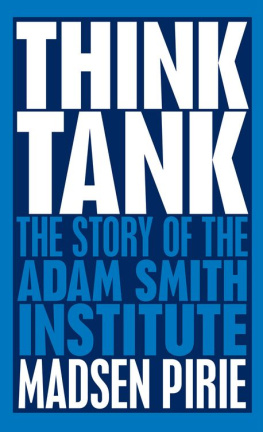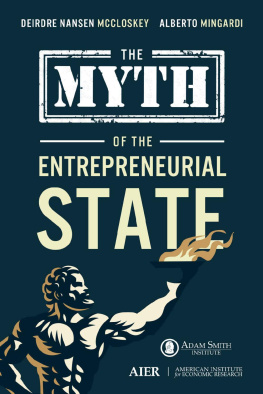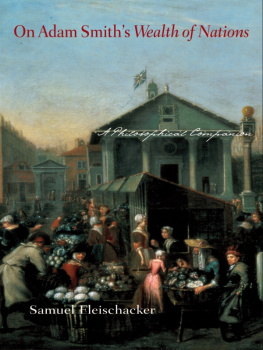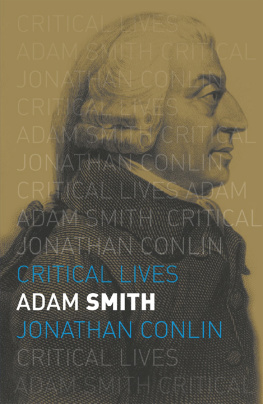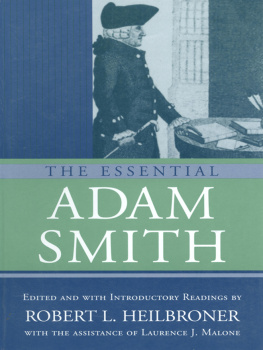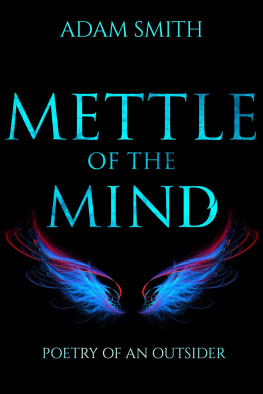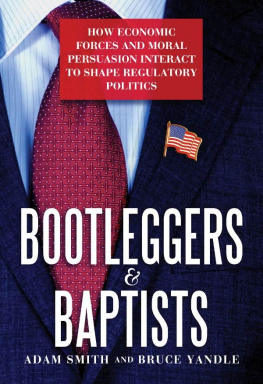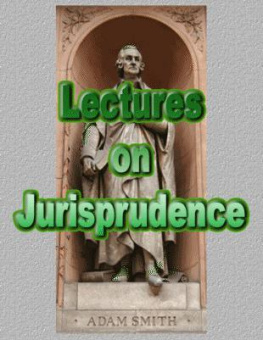S everal people helped with this book. Prominent among them is the team at Biteback Publishing, especially Iain Dale, Sam Carter and Hollie Teague. Essential help was freely given by my colleague, Eamonn Butler, whose story this also is, and who aided me in recording its incidents and detail. Daniel Cowdrill patiently read the early draft and made constructive comments on how it might be improved.
This is a very personal account, but the story it tells is one made by many people. It is my pleasure now to give thanks to all the young people who over the years have put time and effort into the work of the Adam Smith Institute. And finally I thank those who worked with the Institute from the political world, from academe, from business, from the media and from like-minded organizations , and whose contributions helped make these things happen.
Cambridge 2012.
I t all began in the snows of Hillsdale, Michigan, where I was Professor of Philosophy. As the winter of 1976 drew to a close, there was change in the air in both Britain and America. Ronald Reagan was fighting for the Republican nomination he was finally to win three years later. Margaret Thatcher was Conservative leader in Britain. But there was more than this. The United States was gripped by its forthcoming bicentenary, as it prepared to celebrate the passage of 200 years since its first Independence Day.
In one of my syndicated US newspaper columns I pointed out that 1776 had been a significant year in several ways. It had marked the death of David Hume, the philosopher with whose ideas I had most sympathy. It saw the publication of volume I of The Decline and Fall of the Roman Empire by Edward Gibbon. In the same year James Watt had presented in Glasgow what was described as the first demonstration of a modern, efficient steam engine. On 4 July the American colonists had issued their Declaration of Independence. And by no means the least important event of the year: the book that virtually invented modern economics, An Inquiry into the Natureand Causes of the Wealth of Nations by the Scottish Enlightenment thinker Adam Smith, was published.
Smith had argued that countries were wealthy not because their rulers had gold and silver stored in vaults, but because of the productive labour of their peoples. He set out an account of how wealth can be created by the division of labour, and augmented by trade. He described the activities of investors, entrepreneurs and governments, and concluded that governments usually brought profligacy, rather than efficiency, into economic activity. His attack on subsidies, monopolies and all the trappings of government intervention seemed to have lessons for the modern world, and especially for Britain.
Stuart Butler (who was also teaching at Hillsdale), Eamonn Butler and I had all studied at the University of St Andrews, and had there helped to shape an ethos which had combined free-market economics with libertarian social attitudes. The usual combination on the political right was of a pro-business economic stance allied to paternalistic and restrictive social policies. We had no time for either, and had espoused pro-competition policies rather than ones friendly to established businesses, together with social policies that emphasized free choices and sanctioned alternative lifestyles.
All of us came from quite ordinary backgrounds and had attended state schools. We were all to some degree mischievous, even subversive, having no respect for established authority or position, but preferring to judge people on their abilities and ideas on their merit.
The University of St Andrews Conservative Association in which we were all involved had adopted these causes wholeheartedly , and turned itself into an effective force, spreading its ideas through meetings and publications both inside St Andrews and beyond. It acquired a national reputation for its espousal of this philosophy, and candidates imbued with those views began to run for local government and parliamentary elections.
We looked to Adam Smith as one of its intellectual forebears and, being part Scottish ourselves, drew added satisfaction from the fact that he, too, was Scottish. We had also been influenced by the works of such thinkers as Milton Friedman, Friedrich Hayek and Karl Popper.
There was an institute in London which drew heavily on Smiths ideas, and those of the free-market economists who had followed in his wake. This was the Institute of Economic Affairs (IEA), founded by Sir Antony Fisher twenty years earlier, and which had published a steady stream of monographs analyzing the deficiencies of central direction, state planning and economic intervention. They were intellectually rigorous, and had made their way into the literature of economics libraries, albeit in a separate corner, almost fenced off from the mainstream.
But we wanted something more. It was all very well to win theoretical arguments, but nothing seemed to happen afterwards. Governments continued on their unruly ways, while academics devised new follies to set up on the wreckage of the old ones. We wanted to change reality; to have an impact on what actually happened. We wanted to make policy.
Adam Smith might have been one strong influence on our thinking, but there were others. One was James Buchanan, the Nobel Laureate who, with Gordon Tullock, James Niskanen and others, developed what came to be known as Public Choice Theory. In essence it took the ideas of economics into the domain of politics and administration. Instead of treating politicians and civil servants as selfless seekers after public good, the theory treated them as if they were ordinary economic participants , out to maximize their own advantage, just like other people. It proved a very fertile theory for explaining what would otherwise have been incomprehensible outcomes. It also fitted in with the rather less than respectful way that we ourselves regarded politicians.
Public Choice told us how minority interest groups could hijack the political agenda to have advantages created for themselves. It explained how politicians respond to pressure from vociferous and self-interested groups, but not from a public at large which might be largely unconscious of the effect policy made upon it. Public Choice Theory was basically a critique, but we began to wonder if there could be a creative counterpart to it. Just as Public Choice Theory told us why certain policies were doomed to political failure , however economically sound they might be, could it not be used to create policies that would not be subject to these limitations ? Could new free-market strategies be crafted that flowed with political reality by building in the support of the interest groups which might otherwise derail them?
This was powerful stuff. Sometime in the spring of 1976, Stuart Butler and I decided to return to the UK the following year to set up an institute to develop and propagate such policies. We had come to the US because it offered opportunities for employment and advancement scarcely possible in the UK of the 1970s. We had seen how vigorous was the drive for self-improvement in the US, and we had seen how US pressure groups and research organizations strove to create conditions under which it could flourish.
We wanted to replicate some of that in the UK, but the big problem was finance. There seemed to be no money for such a cause in Britain. There was no tradition of charitable giving in support of philosophical causes, nor any of the big foundations which supported research organizations in the US, nor any of the charity-friendly laws which had helped to promote philanthropy there.

